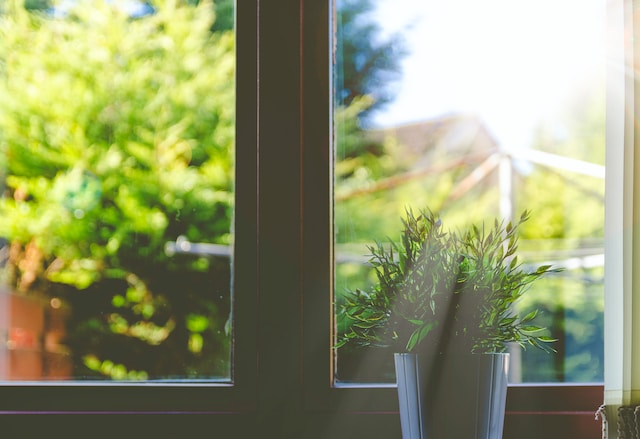Energy-efficient windows are becoming increasingly popular among homeowners and for good reason. These windows are designed to prevent air leaks and reduce energy consumption, leading to lower energy bills and a more comfortable living environment. In this article, the benefits of energy-efficient windows will be explored, and why most people should consider making the switch.
One of the main advantages of energy-efficient windows is their ability to reduce heat loss during the winter months. Traditional windows can allow up to 30% of a home’s heat to escape, resulting in higher energy bills and a colder living space. Energy-efficient windows, on the other hand, are designed to trap heat inside the home, keeping it warm and comfortable even on the coldest days.
In addition to keeping the heat in during the winter, energy-efficient windows also work to keep the heat out during the summer months. By reflecting the sun’s rays away from the home, these windows prevent the buildup of heat inside, reducing the need for air conditioning and further lowering energy bills. Overall, energy-efficient windows provide a cost-effective solution for homeowners looking to reduce their energy consumption and enjoy a more comfortable living space.
Table of Contents
Why Energy-Efficient Windows?
Energy-efficient windows are an excellent investment for homeowners. They are designed to reduce energy consumption, save money on utility bills, and reduce environmental impact. In this section, we will explore why energy-efficient windows are essential.
Cost Savings
One of the primary reasons to invest in energy-efficient windows is to save money on utility bills. Traditional windows allow heat to escape during the winter months and let in too much heat during the summer months, causing your heating and cooling systems to work harder than necessary. Energy-efficient windows are designed to minimize heat transfer, keeping your home comfortable and reducing the workload on your HVAC system.
According to the U.S. Department of Energy, homeowners can save up to 25% on their energy bills by installing energy-efficient windows. The initial investment may be higher than traditional windows, but the long-term cost savings make it a worthwhile investment.
Environmental Impact
Energy-efficient windows not only save money, but they also reduce environmental impact. Traditional windows contribute to greenhouse gas emissions by requiring more energy to heat and cool homes. Energy-efficient windows reduce the amount of energy needed to maintain a comfortable temperature in your home, which in turn reduces your carbon footprint.
In addition to reducing greenhouse gas emissions, energy-efficient windows also reduce the demand for energy production. This reduction in demand can help reduce the need for new power plants and decrease reliance on non-renewable energy sources.
Overall, energy-efficient windows are an excellent investment for homeowners looking to save money on utility bills and reduce environmental impact. By reducing energy consumption, energy-efficient windows help homeowners save money while also contributing to a more sustainable future.
How Energy-Efficient Windows Work
Energy-efficient windows are designed to reduce the amount of energy that is lost through windows. They work by using advanced technologies and materials that help to insulate the home, reduce heat transfer, and block out harmful UV rays. This section will explore the insulation properties and light transmission of energy-efficient windows.
Insulation Properties
One of the main benefits of energy-efficient windows is their insulation properties. These windows are designed to keep the heat inside during the winter months and outside during the summer months. They achieve this by using special coatings and materials that reduce the transfer of heat through the glass.
Double-paned windows, for example, have two layers of glass with a layer of air or gas in between. This layer of air or gas acts as an insulator, reducing the amount of heat that is transferred through the glass. Some energy-efficient windows also have low-emissivity (low-e) coatings that reflect heat back into the room, further reducing heat loss.
Light Transmission
Energy-efficient windows also offer excellent light transmission. They allow natural light to enter the home while blocking out harmful UV rays. This is achieved by using special coatings that filter out UV rays while still allowing visible light to pass through.
Low-e coatings, for example, can be designed to block out up to 99% of UV rays while still allowing visible light to pass through. This helps to protect furniture, carpets, and other items in the home from fading due to exposure to sunlight.
In addition to their insulation properties and light transmission, energy-efficient windows also offer other benefits such as noise reduction, improved comfort, and increased home value. By installing energy-efficient windows, homeowners can save money on their energy bills while also reducing their carbon footprint.

